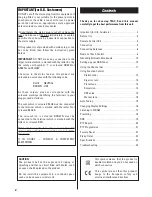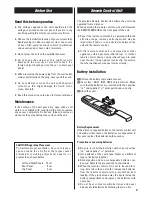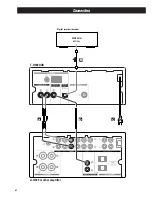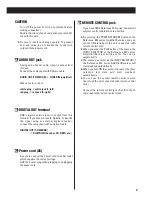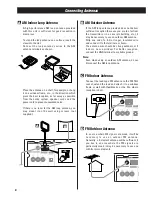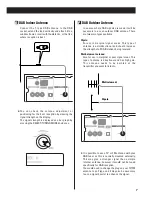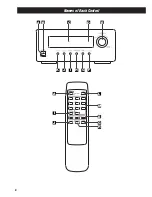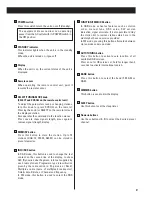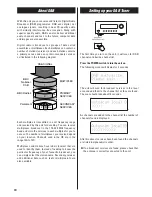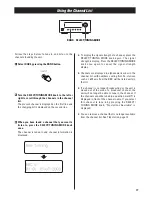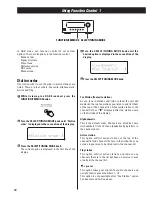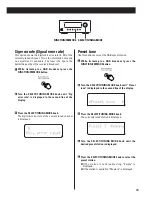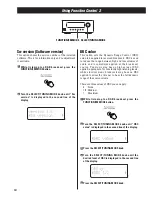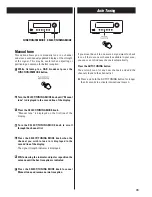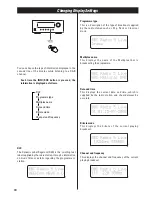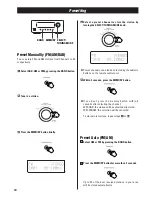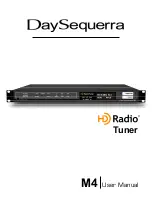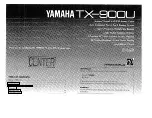
10
About DAB
With this unit you can receive and listen to Digital Audio
Broadcast (DAB) programmes. DAB uses digital, not
analogue signals, resulting in near CD-quality audio
with virtually interference-free reception. Along with
superior quality audio, DAB can also deliver additional
audio channels and text. In the future, computer data
and images are also possible.
Digital radio is broadcast as groups of data called
ensembles or multiplexes. Each multiplex can contain a
number of stations (services) and each station contains
a primary service and can contain secondary services
as illustrated in the following diagram.
Each multiplex is transmitted in a set frequency range
and received by this unit for decoding. You can receive
multiplexes broadcast in the 174–240 MHz frequency
band and store the services in each multiplex for you to
access. The number of multiplexes you receive depend
on your location. Channels used in the UK are in the
range 10A to 12D.
Multiplexes and stations have labels (names) that are
used to identify them. Instead of needing to know the
particular frequency of your favourite broadcast, you
can simply select the station name. Secondary services
and additional data such as text or multiplex info are
also available.
1
2
1
3+
3 4+
2
1
DAB SIGNAL
BBC
National
DAB
BBC Radio 4
Parliament
MULTIPLEX
PRIMARY
SERVICES
SECONDARY
SERVICES
Setting up your DAB Tuner
The first time you turn on the unit, it will scan for DAB
channels and build a channel list.
Press the POWER switch to turn the unit on.
The following screen will display for 2 seconds.
The unit will scan for broadcast services in the local
area and add them to the channel list as they are found.
The scan should take about 10 seconds.
As channels are added to the channel list the number of
channels found is displayed.
After broadcast services have been found the channels
are listed in alphanumeric order.
>
If no broadcast services are found, please check that
the antenna is correctly connected to the unit.


